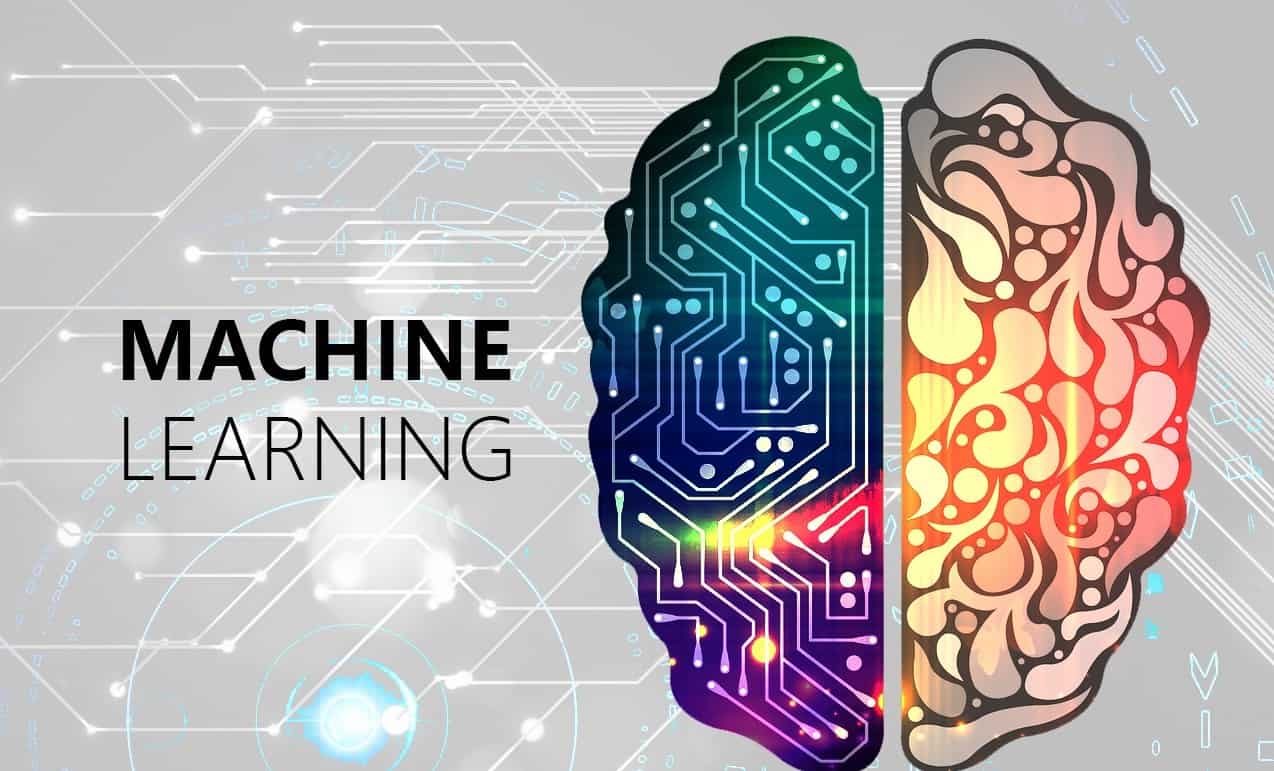10 Reasons Why Machine Learning Is Important
In today’s digitally-driven world, mastering the intricacies of machine learning has become a paramount pursuit. Machine learning is an essential component of artificial intelligence and is revolutionizing industries across the globe. In this era of data abundance, it empowers us to harness information unprecedentedly. This transformative technology impacts diverse facets of our lives, from automating critical decision-making processes to personalizing user experiences, bolstering healthcare, fortifying cybersecurity, optimizing supply chains, and fostering sustainable solutions. In exploring 10 Reasons Why Machine Learning Is Important, we’ll uncover this discipline’s pivotal role in shaping our future.
1. Automation of Decision-Making Processes
Automating decision-making processes is a pivotal aspect of why machine learning holds immense significance today. Masters in machine learning graduates are at the forefront of this transformation. With the ability to analyze vast datasets and discern intricate patterns, machine learning algorithms empower businesses to make data-driven decisions swiftly and accurately. This not only enhances operational efficiency but also reduces human errors. Moreover, machine learning models can adapt and learn from new data, ensuring continuous improvement in decision-making. Whether in finance, healthcare, or manufacturing, machine learning mastery is vital for organizations aiming to thrive in our data-driven world, making it an indispensable skill in today’s workforce.
2. Enhanced Personalization in Customer Experiences
Machine learning has transformed how companies communicate with their customers, offering many benefits, with enhanced personalization being a key advantage. In today’s competitive market, consumers expect tailored experiences that respect their choices and requirements. Massive volumes of data are analysed using machine learning algorithms, enabling companies to deliver highly personalized content, product recommendations, and services.
This level of personalization enhances customer satisfaction, drives customer loyalty, and boosts sales. Machine learning models can segment customers based on their behavior and demographics, predicting their preferences and purchase patterns. As a result, businesses can create targeted marketing campaigns and product offerings, increasing the likelihood of conversion.
Moreover, machine learning continuously adapts to changing customer behavior, ensuring that the personalization remains relevant. Utilising machine learning capabilities, companies can foster deeper customer relationships, improve engagement, and ultimately achieve a competitive edge in the market.
4. Improved Healthcare Diagnostics and Treatment
Machine learning is revolutionizing healthcare by significantly enhancing diagnostics and treatment processes. One of the primary reasons for its importance is its capacity to analyse enormous amounts of data of medical data with unmatched speed and accuracy. Machine learning algorithms can identify patterns, anomalies, and correlations within medical records, images, and patient data that may be too complex for human practitioners to discern.
Moreover, machine learning models are crucial for predicting diseases, optimizing treatment plans, and identifying potential adverse events. This improves patient outcomes and enables personalized medicine tailored to individual needs. Furthermore, machine learning aids in drug discovery, clinical trial optimization, and the development of innovative medical devices, contributing to the advancement of healthcare and ultimately saving lives. In parallel, HCS High Content Screening techniques are revolutionizing drug development by rapidly analyzing thousands of cellular images to identify potential drug candidates and assess their efficacy, accelerating the pace of scientific discovery in biomedicine.
-
Efficient Fraud Detection and Cybersecurity
In an era of digital interconnectedness, cybersecurity and fraud detection have become paramount concerns for individuals and organizations. Machine learning plays a pivotal role in bolstering these defenses. Its importance lies in its ability to adapt and evolve continuously, keeping pace with the ever-shifting tactics of cybercriminals.
Machine learning models can analyze vast datasets in real-time, identifying anomalies and suspicious activities that would be impractical for humans to discern. They enable early detection of fraudulent transactions, phishing attempts, and malware intrusions, reducing financial losses and safeguarding sensitive information.
Moreover, machine learning enhances threat intelligence by learning from previous attacks and predicting potential vulnerabilities. This proactive approach is crucial in staying one step ahead of cyber threats, making it an indispensable tool in today’s digital landscape.
-
Optimized Supply Chain Management
Optimized Supply Chain Management is crucial for businesses seeking efficiency and cost-effectiveness. Machine Learning plays a pivotal role in achieving this goal. Firstly, it enables accurate demand forecasting, allowing companies to align production and inventory levels with actual market needs. Secondly, ML algorithms enhance inventory management by dynamically adjusting stock levels, reducing excess and shortages. Additionally, it aids in route optimization and logistics planning, leading to streamlined transportation and reduced expenses. Machine Learning also enables predictive maintenance of machinery, reducing downtime and ensuring uninterrupted operations. Finally, it provides real-time visibility into the entire supply chain, enabling swift response to disruptions. In essence, Machine Learning empowers businesses to adapt and thrive in the dynamic landscape of modern supply chain management.
-
Advanced Natural Language Processing
Advanced Natural Language Processing is one of the compelling reasons why machine learning holds immense importance. NLP enables computers to understand, interpret, and generate human language, leading to many transformative applications. Firstly, it powers virtual assistants like Siri and Alexa, making human-computer interactions more intuitive. Secondly, NLP plays a pivotal role in sentiment analysis, allowing businesses to gauge public opinion, refine products, and tailor marketing strategies.
Moreover, it facilitates multilingual communication, breaking down language barriers in global contexts. NLP is also instrumental in content recommendation systems, helping users discover relevant information. It plays a crucial role in accessibility solutions, such as the caption call application, sign language recognition and translation tool, real-time speech-to-text transcription app, and many more tools that aid individuals with hearing impairments. Furthermore, it aids in automating text summarization and translation tasks, saving time and resources. Advanced NLP is reshaping how we interact with technology, enhancing efficiency, and enabling more natural and intelligent human-computer conversations.
-
Accelerated Scientific Research and Discovery
Machine learning is crucial for accelerating scientific research and discovery because it can analyze vast datasets, identify patterns, and generate insights at unprecedented speeds. Scientists across various disciplines, from genomics to particle physics, leverage machine learning to process and interpret massive amounts of data, leading to breakthroughs that would otherwise be unattainable. Whether it’s predicting protein structures, simulating complex physical phenomena, or analyzing astronomical data, machine learning algorithms can identify hidden relationships and anomalies, aiding researchers in formulating hypotheses and designing experiments more efficiently. This accelerates the pace of scientific advancement, ultimately stimulating creativity and addressing some of the world’s most critical issues.
-
Predictive Maintenance for Industrial Equipment
For several reasons, predictive maintenance powered by machine learning is crucial for industrial equipment. Firstly, it minimizes downtime by forecasting equipment failures, allowing for proactive repairs. This leads to cost savings through reduced emergency repairs and increased machinery longevity. Secondly, it enhances worker safety by preventing unexpected equipment breakdowns. Thirdly, it optimizes operational efficiency as maintenance is scheduled based on actual usage rather than fixed intervals. Additionally, machine learning can analyze vast datasets, identifying nuanced patterns humans might miss. This results in more accurate predictions and continuous improvement in maintenance strategies, making it an indispensable tool for modern industrial operations.
-
Streamlined Financial Forecasting and Risk Management
Machine learning plays a pivotal role in financial forecasting and risk management by harnessing the power of data analysis and predictive algorithms. It enables organizations to make more accurate predictions about market trends, investment opportunities, as well as potential risks. By analyzing vast datasets in real-time, machine learning models can detect anomalies and patterns that humans might overlook. This helps financial institutions and businesses optimize strategies, reduce losses, and enhance financial stability. In an ever-fluctuating economic landscape, machine learning offers invaluable insights and automation crucial for informed decision-making and maintaining a competitive edge.
-
Sustainable Environmental Solutions
Machine learning plays a pivotal role in advancing sustainable environmental solutions. Firstly, it enables precise monitoring of environmental data, aiding in the early detection of climate changes, deforestation, and pollution. Machine learning algorithms can analyze vast datasets, helping researchers make informed decisions for conservation efforts and resource management. Additionally, ML-powered predictive models assist in optimizing energy consumption and reducing emissions in various industries. Furthermore, machine learning can enhance the efficiency of renewable energy sources like wind solar power, making them more accessible and reliable. Machine learning is essential in addressing pressing environmental challenges and fostering a more sustainable future.
Summary
The multifaceted importance of machine learning cannot be overstated. Its rapid integration into various industries underscores its significance. As technology advances, those who have mastered machine learning are poised to lead innovation and drive progress. with applications in finance and healthcare and cybersecurity to environmental sustainability, machine learning empowers us to make informed decisions, enhance efficiency, and unlock new realms of possibility. Embracing the potential of machine learning is not just advantageous; it’s essential in our quest for a more imaginative, more connected, and innovative world. Pursuing a masters in machine learning could be the key to shaping a brighter future.




